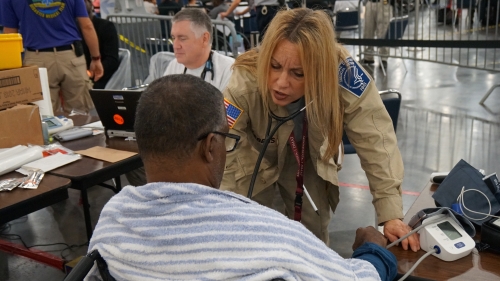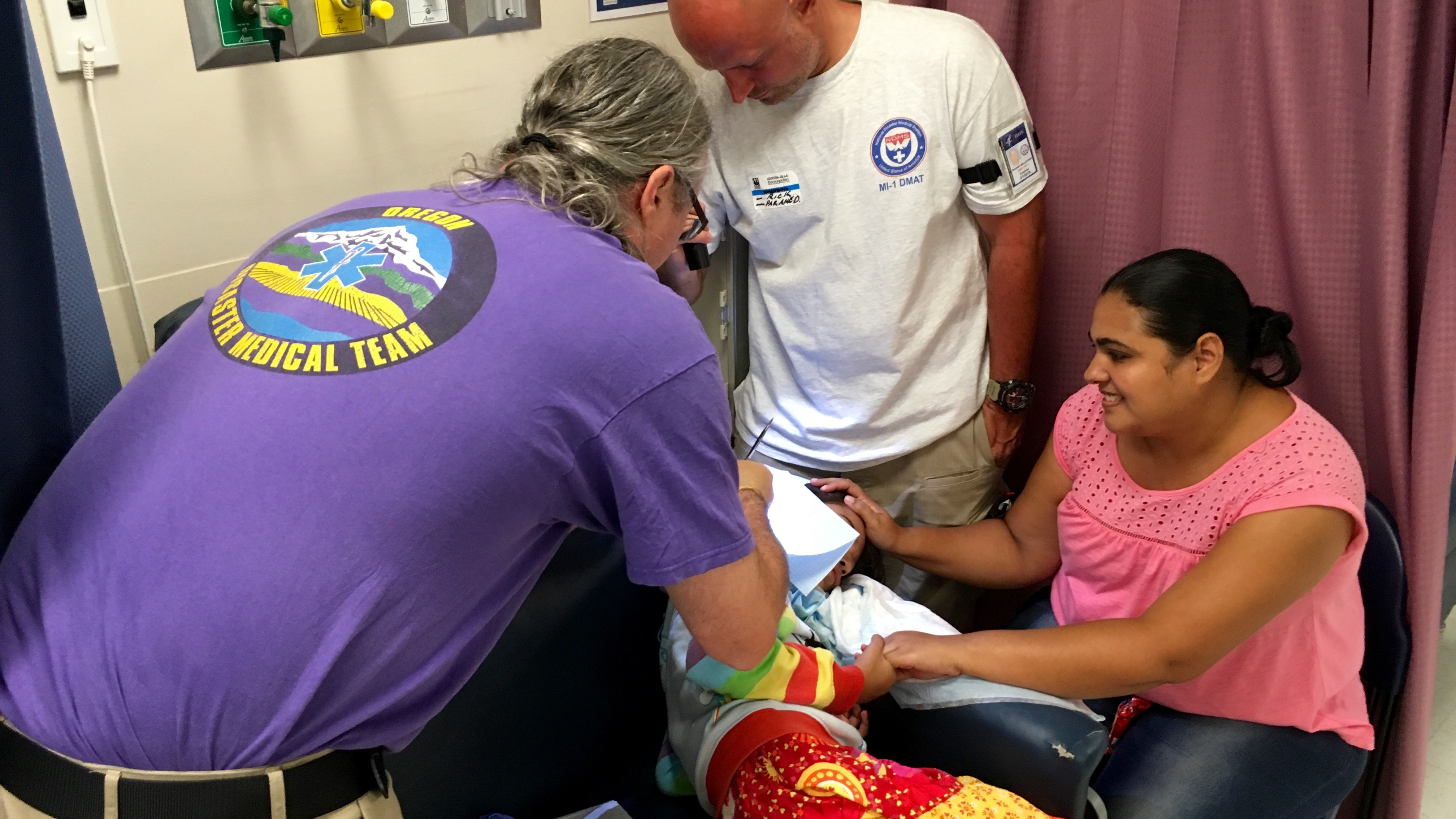Healthy Nurse, Healthy Nation™ Blog - The Hospital Preparedness Program: Supporting Emergency Preparedness For The U.S. Health Care Delivery System
Published
By Melissa Harvey, Director of the Hospital Preparedness Program

With the nation still recovering from Hurricane Florence and wildfires in the west, it is critical that the U.S. health care system be ready. Fortunately, The Hospital Preparedness Program (HPP) prepares the health care system to save lives during emergencies and disasters. Administered by the Department of Health and Human Services Assistant Secretary for Preparedness and Response, HPP is the only source of federal funding for health care delivery system readiness.
The program focuses on preparing the health care system to save lives during emergencies that exceed day-to-day capacity of the health care and emergency response systems. HPP does this by developing and sustaining more than 450 regional health care coalitions (HCCs) that bring diverse and often competitive health care organizations together to prepare for and respond to emergencies. Over 31,000 health care stakeholders nationwide belong to HCCs, including hospitals, trauma centers, and clinics. HPP has a wealth of resources that health care facilities and staff, including nurses, can leverage to build their preparedness and response capabilities.
HPP seeks to increase health care organizations participation in HCCs. Use our interactive Health Care Coalitions Map to see if your health care organization is a member of an HCC. If you are interested in learning more about how HPP can support your health care organization, please visit www.phe.gov or contact HPP@hhs.gov.
Updated 12/6/22

With the nation still recovering from Hurricane Florence and wildfires in the west, it is critical that the U.S. health care system be ready. Fortunately, The Hospital Preparedness Program (HPP) prepares the health care system to save lives during emergencies and disasters. Administered by the Department of Health and Human Services Assistant Secretary for Preparedness and Response, HPP is the only source of federal funding for health care delivery system readiness.
The program focuses on preparing the health care system to save lives during emergencies that exceed day-to-day capacity of the health care and emergency response systems. HPP does this by developing and sustaining more than 450 regional health care coalitions (HCCs) that bring diverse and often competitive health care organizations together to prepare for and respond to emergencies. Over 31,000 health care stakeholders nationwide belong to HCCs, including hospitals, trauma centers, and clinics. HPP has a wealth of resources that health care facilities and staff, including nurses, can leverage to build their preparedness and response capabilities.
Preparedness Exercises and Trainings
Conducting exercises and training is a critical element of preparedness. HPP resources empower facilities and clinicians to understand what to do when an emergency occurs.- The 2017-2022 Health Care Preparedness and Response Capabilities document outlines high-level objectives that the nation’s health care delivery system should undertake to prepare for, respond to, and recover from disasters and other emergencies. HCCs are required under the capabilities to plan and conduct coordinated exercises with HCC members and other response organizations.
- The National Ebola Training and Education Center (NETEC) builds on lessons learned during the 2014-2015 Ebola outbreak to support infectious disease preparedness. (Editor's note: As of 12/6/22, NETEC now stands for National Emerging Special Pathogens Training and Education Center.) NETEC provides numerous educational resources and just-in-time training efforts that facilities and clinicians can use to prepare for highly infectious diseases outbreaks, including workshops and simulations, web-based and in person trainings, and an online repository of templates and publications.
Tools and Technical Assistance
HPP has a variety of tools and resources that clinicians, including nurses, can take advantage of to increase their ability to respond in an emergency.- ASPR TRACIE is an emergency preparedness information gateway that provides health care facilities and clinicians with resources to improve preparedness, response, recovery, and mitigation efforts.
- HPP also hosts numerous trainings and webinars * to provide insight into best practices and to describe real world examples of how preparedness is implemented across the nation. These trainings * ensure clinicians, including nurses, are equipped with actionable information to better prepare for and respond to an emergency. *(Editor's Note: the trainings and webinars links mentioned above are no longer active as of 12/6/22. You can view this link https://aspr.hhs.gov/HealthCareReadiness/HPP/Pages/about-hpp.aspx for resources.)
HPP seeks to increase health care organizations participation in HCCs. Use our interactive Health Care Coalitions Map to see if your health care organization is a member of an HCC. If you are interested in learning more about how HPP can support your health care organization, please visit www.phe.gov or contact HPP@hhs.gov.
Updated 12/6/22
Blog Safety
10/04/2018 1:33pm CDT



Post a Comment or Question